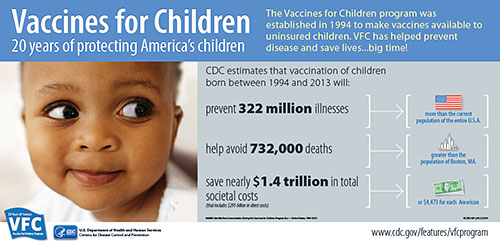Gentrification
When people think of gentrification they think of it simply as neighborhood revitalization or making improvements to houses. However, gentrification is much more complicated. According to Sutton, the term “gentrification” really refers to "the processes by which people of higher income or status relocate to or invest in low-income urban neighborhoods”. Higher income people come to these uninvested neighborhoods to capitalize on the low property values. However, this inflates property value, displaces low-income residents, and completely alter the cultures and way of life of the neighborhoods.
Difference Between Revitalization and Gentrification?
Revitalization can take two forms: incumbent upgrading and gentrification.
- Incumbent upgrading is when residents of the neighborhoods improve the condition of their neighborhoods. This improves housing, attracts businesses and makes the neighborhood safe and clean. When incumbent upgrading occurs, the neighborhood still remains affordable for low-income people.
- Gentrification, on the other hand, draws middle or upper-class residents to the city. They are attracted by job and opportunities, low housing prices, stabilization of negative social conditions such as crime, and perhaps the desire to a new lifestyle.
The adverse result of gentrification is displacement, however, displacement is not present in incumbent upgrading.
Now, what are the Causes of Gentrification?
According to Vo, gentrification occurs when there is a lot of public transportation available for people to use. Transits such as train, bus, and etc. provide an alternative to car thereby reducing transportation cost costs for residents. Another cause of gentrification is schools and education. The quality of schools and universities is a key determinant for the property value. Popular schools can accelerate the gentrification process by bringing money into neighborhoods by providing housing and other resources for students, faculty, and staff. Take for example, during 2018, the University of Southern California, one of the most prestigious universities in the west, spend over 700 million dollars building the USC Village. The completion of USC Village transformed the surrounding neighborhoods with new buildings such as dorms to house over 2,500 students as well as a Trader Joe’s, Target, Starbucks and over 20 other well-known businesses.
USC is located less than five miles from Los Angeles, one of the most gentrified areas in the U.S.
According to Carter, from 2000 to 2016, Los Angeles has seen:
- An increase in property values by 707 percent
- An increase in median household income by 95 percent
- An increase in people holding a bachelor or higher degrees by 857 percent
The Result of Gentrification?
The most adverse effect of gentrification is displacement.
According to a recent comprehensive review of gentrification completed by researchers at UC Berkeley and UCLA, displacement occurs “ when occurs when any household is forced to move from its residence by conditions which affect the dwelling or immediate surroundings, and which:
- are beyond the household’s reasonable ability to control or prevent
- occur despite the household’s having met all previously-imposed conditions of occupancy; and
- make continued occupancy by that household impossible, hazardous or unaffordable.”
The most common form of displacement is direct displacement. Take for example you’ve been living in a neighborhood for 4 years and paying 1,200 dollars a month but all of a sudden your landlord increases your rent to 2,400 dollars. When faced with this dramatic increase in rent most people would have no choice but to leave. That is direct displacement.
I choose this issue because I want to spread awareness of gentrification and help people understand what gentrification actually is. Surprisingly, not a lot of people are aware of what the word gentrification actually means. I also wanted to take this opportunity to inform myself about gentrification such as the causes and the effects. This issue has affected thousands of families not just in Los Angeles but all across other cities as well. Rent is constantly rising year after year and it has affected many people I know. I have seen it affect my uncle’s family who had to move away from Los Angeles because they could not keep up with the rising rent. Even in my city of El Monte, I have seen signs of gentrification occurring with the influx of Chinese population in a city predominantly Hispanic. I hope that everyone will have a better understanding of gentrification after reading this blog.
Community Opinions
"Although I never experienced gentrification first hand, I know it's making it difficult for people who live in the area to stay there as the cost of housing goes up. It is definitely an issue that cities need to resolve"
“I've been aware of gentrification and have known people who had to leave the state for another because of the cost of living. I also knew people who had to share a house/apartment because of the inflation on house/rent prices. I believe that there's not much a person can do about it and to just go with the flow.”
Works Cited
Carter, Shawn M. “This LA Neighborhood Is the Most Gentrified in the US.” CNBC, CNBC, 6
Mar. 2018,
www.cnbc.com/2018/03/06/la-and-the-other-top-10-most-gentrified-zip-codes-in-the-us
html.
Sutton, Stacey. “3 Common Myths About Gentrification – And the Facts That Prove We Need to
Stop It.” Everyday Feminism, 2 Oct. 2015,
everydayfeminism.com/2015/10/truth-about-gentrification/.
Vo, Kelly. “University Neighborhood Gentrification Statistics.” MetroMBA, MetroMBA, 14
Aug. 2018, www.metromba.com/2018/08/university-gentrification-statistics/.
Zuk, Miriam, et al. “Gentrification, Displacement and the Role of Public Investment: A
Literature Review.” Community Development Investment Center , University of
California, Berkeley, University of California, Los Angeles, Aug. 2015, www.frbsf.org/community-development/files/wp2015-05.pdf.














